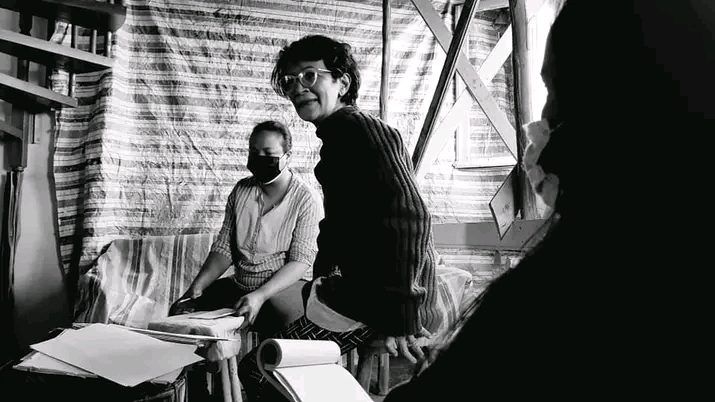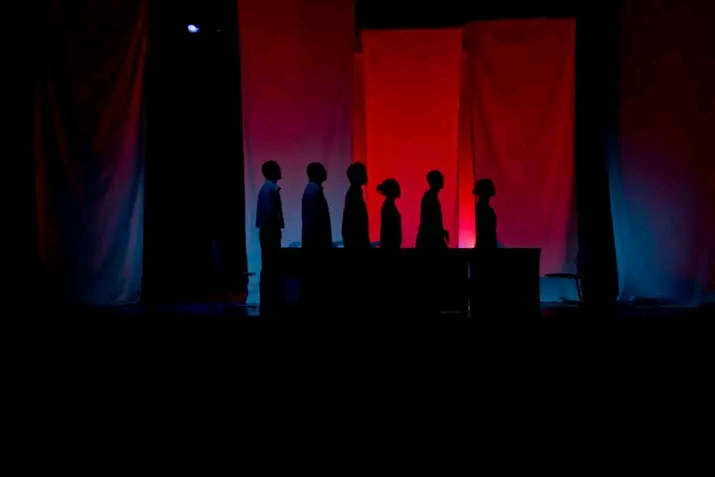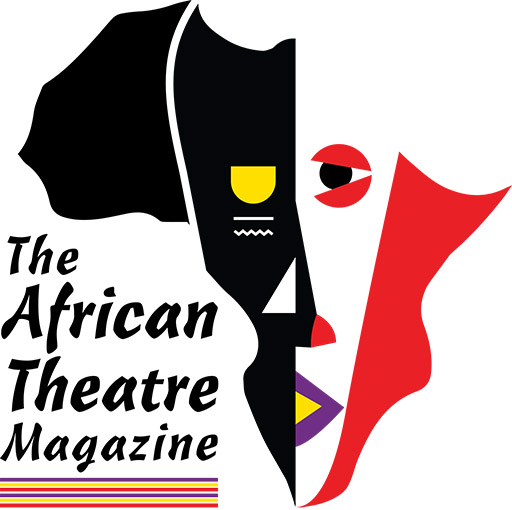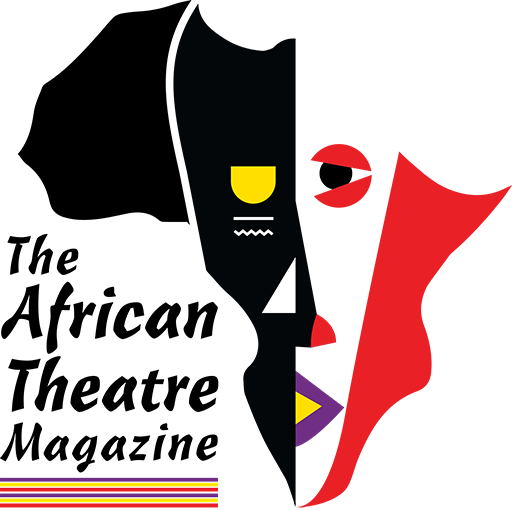They say everyone can be an actor. Any location can transform into a theatre stage. Yet finding a theatre, or the Miangaly theatre company, is equivalent to meeting a president in a nightclub—a tedious job.
It was at a public speaking workshop that I first met Miangaly theatre company stage directors Christiane Ramanantsoa, Haja Ravalison, and Vony Ranala. They used theatrical exercises like role plays to help me get to know myself. Since then, I’ve developed a fresh perspective on theatre.
However, what I have learned with Miangaly theatre company is that passion is not enough to survive in the theatre industry, despite its openness and boldness.
Christiane Ramanantsoa and the beginning
Christiane Ramanantsoa is the founder of the Miangaly Theatre company. She says she never imagined theatre would be a calling; she did not see herself doing it for long.
A former history and geography professor, Christiane Ramanantsoa worked at Diego University in northern Madagascar. She further became a French language instructor at the French Alliance of Antananarivo, a French culture centre in the capital.
See also: Faded: Beyond the Dance
It was through her role as a French language instructor that her journey with theatre started. Her journey began when she participated in a drama workshop run by the French Alliance Drama Workshop also known as ATAF – Atelier de Théâtre de l’Alliance Française as a volunteer actor.

“We were just four volunteers doing theatre at ATAF,” she remembers.
They used the stage and rehearsal space at French Alliance in Antananarivo and had the opportunity to stage performances outside the centre. As a result, they gained some notoriety on the Madagascar theatre scene.
At the beginning of 2001, ATAF split from the French Alliance to form ATAF Miangaly. This was the beginning of Ramanantsoa’s life as a stage director.
Although it is difficult to make a living through theatre in Madagascar, Ramanantsoa was devoted. At this point, art had become more essential than money. Ramanantsoa and the stage were not willing to part ways. She stayed.
“The passion, the intense pleasure of creating, the emotion of sharing, and so many other things made me stay until now,” she says.
See also: John Rwoth-Omack Bears the Torch of African Theatre in the Diaspora
This was courageous in a society where women were discouraged from working and pursuing their passions. Today Ramanantsoa has turned to theatre as a means of escaping and defying conventional norms.
And it doesn’t hurt to have a supportive partner. Ramanantsoa says that throughout her artistic path, her spouse supported and encouraged her unconditionally.
She formed her theatre troupe in 1998 and named it the Miangaly Theatre Company.
“I love my family and my big Miangaly family… I think I could not have continued without their support, kindness, and love.”
Of course, she does more, but she argues that the only thing she thrives at is acting.

Why Miangaly?
“Miangaly” is a word taken from the Malagasy language, which is the national language of Madagascar and an Austronesian language. The term “miangaly” is derived from the Malagasy root “angaly,” which means perfection, careful work, and a means for artists to express their thoughts and inspirations. With the prefix “mi-,” the word “miangaly” signifies that artists employ theatre as a medium for self-expression. The noun emphasizes the uniqueness of each actor.
The French and Malagasy-speaking Miangaly theatre company is a group of perfectionist performers who focus their entire attention on creating carefully planned performances.
Ramanantsoa is a follower of Brazilian theatre director Augusto Boal, and she adjusted her theatre approach using his exercises and ideas. “Most of the theatrical exercises I was leading many years ago at Miangaly theatre company were typically based on Augusto Boal’s theatrical exercises,” she says.
She continues to share both her passion and vision for theatre with actors at the company.
See also: Hope Azeda and Her Art that Heals
The Miangaly theatre company is still operating because of this. According to Fela Razafiarison, one of the stage directors, “Only a handful of theatre companies in Madagascar choose to share their knowledge with other actors.”
Miangaly theatre: A theatre of all disciplines
The Miangaly artists don’t limit themselves or their works to a particular kind of theatre. And with an openness to different art forms, they are changing the Malagasy theatre industry.
“There are no strict rules; we welcome every discipline in our shows to convey the message effectively. If the message is more effective with dance, we collaborate with dancers,” Razafiarison proudly shares.

The group has broken boundaries with its approach, going where many theatre companies are limited. They have done elaborate dance and martial arts on stage. “There was a time when we needed an aikido expert to teach us martial arts for our performance. On stage, we practiced aikido and used sticks,” Haja Ravalison shares.
Aikido is a modern Japanese martial art that consists of several distinct styles, including Iwama Ryu, Iwama Shin Shin Aiki ShurenKai, and Shodokan aikido, among others.
With such daring bravery and openness, the artists at Miangaly are constantly evolving and growing owing to their open mindset.
Theatre to a larger audience
The Rallye Moi(s) Theatre is an annual festival curated by the Miangaly Theatre Company since 2018 to introduce theatre to a wider audience.
Since then, March has been designated as the month for the celebration of the arts in various public locations, including the French Alliance of Antananarivo, the French Institute of Madagascar, the Germano-Malagasy Centre, and other areas of the capital.
Throughout the festival, they develop, improvise, and perform plays, mimes, and theatrical showcases, which give more people the opportunity to actively participate in the festival.
See also: John Sibi Okumu: Writing on a Dare!
They also collaborate with other artists to sensitize and lead cultural workshops in rural areas.
“We are able to collaborate and work with other disciplines and adjust to diverse environments. We have played in a variety of settings, from outdoor stages and public spaces to remote locations where it is challenging to perform. One day we had a performance in Ambatondrazaka, a town located in the Alaotra-Mangoro region of Madagascar, situated in the central-eastern part of the country. We had to speak and act out situations aloud in front of thousands of spectators, despite the lack of a microphone. It was a special performance that I won’t forget soon.” Says Ravalison.

Theatre as a tool for Education and change
In Madagascar, pursuing your passion as a career is not always easy, and not everyone sets out to be an artist; those who are willing to go against the tide find success.
Some older Malagasy perceive painting, for example, as a pastime rather than a profession. You must be able to sustain yourself if you decide to work in the arts.
To normalise the fact that art is more than a hobby, the company wishes to implement theatre into the educational system.
“We believe that culture is one of the foundations of education,” Ramanantsoa says.
At the moment, French and English-speaking schools such as Collège de France in Antananarivo are profiting from this initiative.
In 2022, the company started involving children in Ivelo, a small village behind Vontovorona in the former province of Antananarivo.
According to Ravalison, some people in Madagascar believe that theatre is for the elderly, which is why the company has decided to bring theatre to different settings, such as schools where actors Nathalie Rason and Hoby Rajoelison are teachers.
Unbelievably, art can manifest itself when the creator is working with passion. Among other things, art can amuse, educate, and heal. That is occasionally the main motivation for certain artists to continue creating art.

As Razafiarison says, “we are convinced that there is something in theatre that has the power to change a person.”
For Ranivoharivololona Razafindrakoto theatre helped control her stuttering. She naturally stammered and found it difficult to speak in front of others. In March 2021, she participated in a drama workshop presented by the company. She recounts how the exercises she did during the class helped her overcome her anxiety and dread of speaking in front of a crowd.
See also: Billy Langa and Mahlatsi Mokgonyana on Pushing the Boundaries of the Craft
“I can handle my stuttering effectively because of the workshop.” Ranivoharivololona reports.
After the workshop, she opted to stay with the Miangaly theatre company. Longer than she had intended. In 2022 she took part in many performances at the Rallye Moi(s) Theatre festival at Antananarivo’s Ivokolo Analakely Malagasy Cultural Centre.
Even though they self-produce each show, they appear to make a livelihood through theatre through their efforts to promote contemporary theatre and its benefits for personal development in a variety of settings: schools, workplaces, streets, cultural centres, and many more spaces.
And they are not slowing down. That is Miangaly theatre company for you.








Discussion about this post